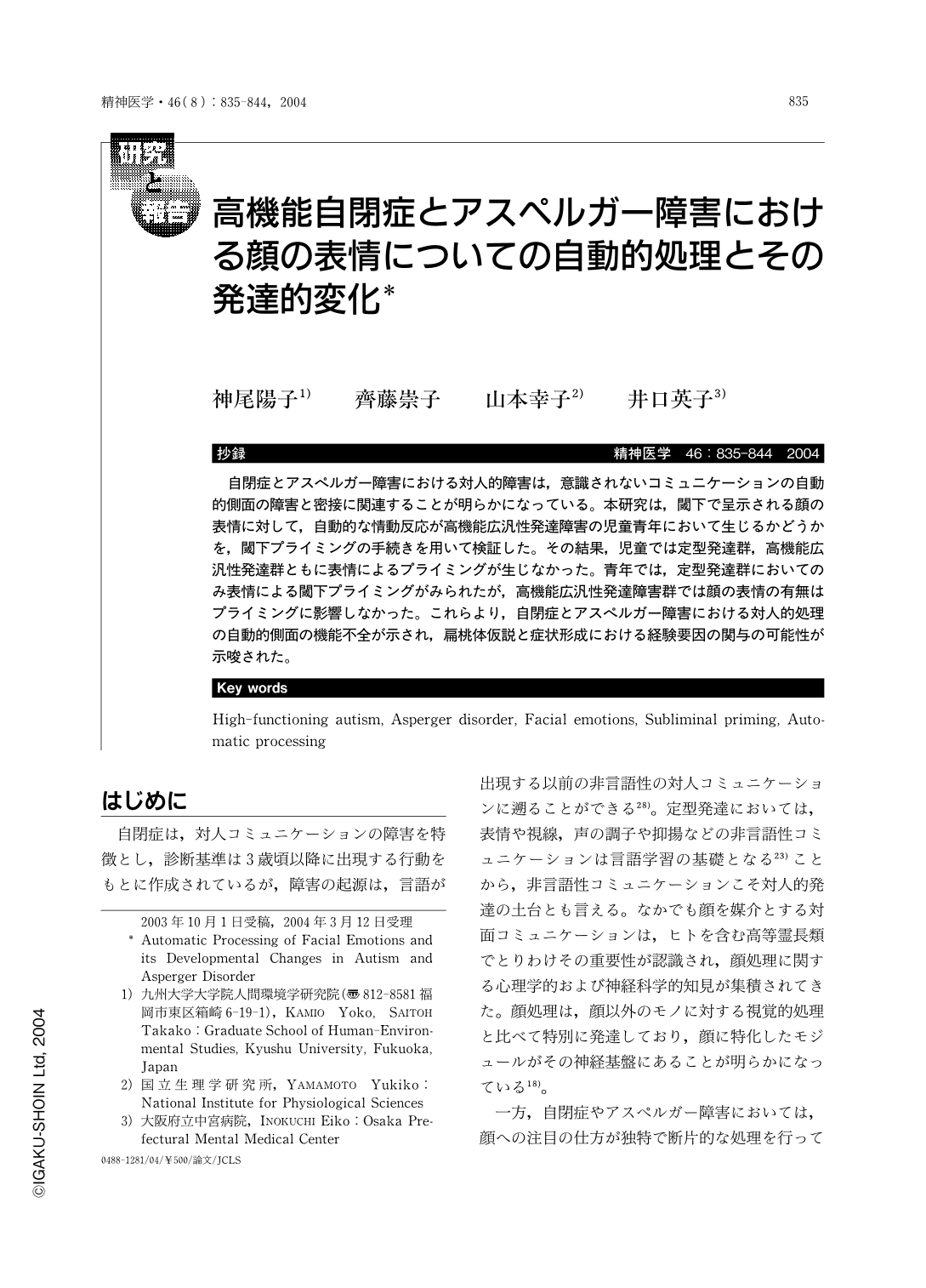Japanese
English
- 有料閲覧
- Abstract 文献概要
- 1ページ目 Look Inside
抄録
自閉症とアスペルガー障害における対人的障害は,意識されないコミュニケーションの自動的側面の障害と密接に関連することが明らかになっている。本研究は,閾下で呈示される顔の表情に対して,自動的な情動反応が高機能広汎性発達障害の児童青年において生じるかどうかを,閾下プライミングの手続きを用いて検証した。その結果,児童では定型発達群,高機能広汎性発達群ともに表情によるプライミングが生じなかった。青年では,定型発達群においてのみ表情による閾下プライミングがみられたが,高機能広汎性発達障害群では顔の表情の有無はプライミングに影響しなかった。これらより,自閉症とアスペルガー障害における対人的処理の自動的側面の機能不全が示され,扁桃体仮説と症状形成における経験要因の関与の可能性が示唆された。
Summary
Social deficit in autism has been shown to be more closely related with impairments of automatic processing of social stimuli than with conscious processing. In this study we investigated the automatic processing for emotional faces in children and adolescents with high-functioning Pervasive Developmental Disorders (HFPDD) using a subliminal priming paradigm. Twenty-seven children and adolescents with HFPDD and 27 typically developing children and adolescents were presented a happy face, a fearful face or a neutral face first at subliminal exposure condition, followed by an emotionally neutral Korean letter, and were instructed to rate the likability of the letter presented. In children of both groups, there was no priming effect for emotional faces perceived without awareness. In typically developing adolescents, emotional faces, however, induced a greater priming effect than neutral faces did, whereas in the HFPDD adolescents there was no differences in the priming effect between faces with and without emotions. The results suggest that HFPDD may be characterized by dysfunction in automatic processing of socio-emotional stimuli, which emerges early in life in typically developing infants. We discussed the possibilities of the amygdala theory of autism and also the involvement of epigenetic factors in the pathogenesis of the autism.

Copyright © 2004, Igaku-Shoin Ltd. All rights reserved.


